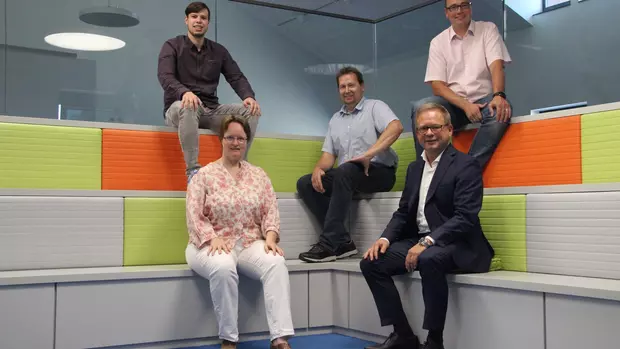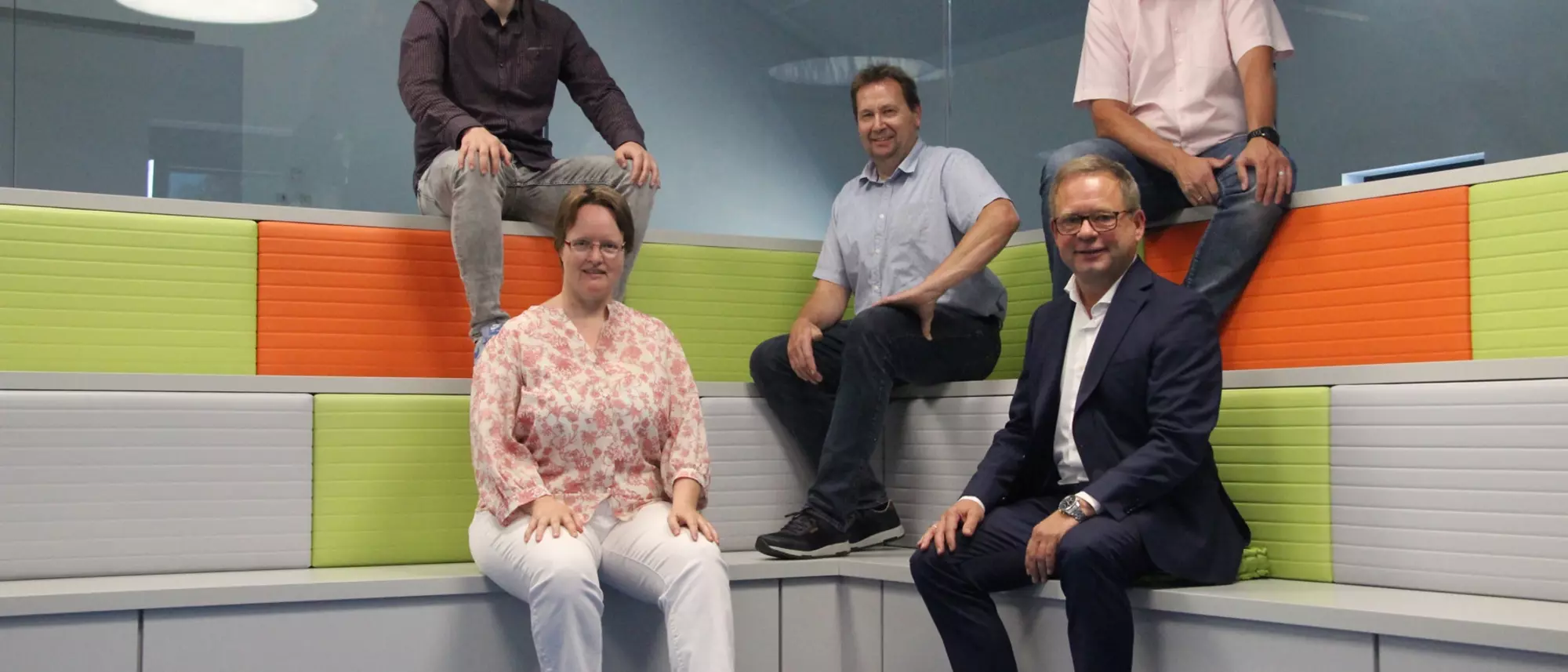
Experts at Mittelhessen Netz GmbH worked for around five years to convert their natural gas network from L-gas to H-gas. This project, which is unique in terms of its scope, was completed last week.
Mittelhessen Netz GmbH (MIT.N), a subsidiary of Stadtwerke Gießen, has successfully completed a project of the century: H-grade natural gas has been flowing through its entire network since mid-April. The new fuel in the region has a slightly higher energy content than the previously supplied L-gas. This increase in calorific value presented MIT.N with a logistical challenge: a total of 34,000 natural gas appliances had to be converted to the new type of gas. "We only had a very tight time window of a few days for many of these appliances," recalls Birte Vermehren, responsible for the project at MIT.N. Other gas appliances cope better with the higher calorific value. This is why the final adjustments took until mid-July, as planned.
This mammoth project, which the specialists from Lahnstrasse began planning back in 2015, was not triggered by an initiative from MIT.N. The nationwide switch to H-gas is a response to dwindling L-gas reserves and the Netherlands' announcement that it will cease production by 2030. Consequently, all network operators with Dutch natural gas flowing through their pipelines must ensure in good time that all connected systems can safely process H-gas. Nationwide, around 4.5 million households were and are affected by the associated conversions. Ultimately, however, the effort is worth it. After all, the conversion will secure the natural gas supply for decades to come. Not only because the worldwide H-gas reserves are enormous, but also because they are distributed relatively widely across the globe. This is precisely what makes us independent of geopolitical developments to a certain extent.
Everything under our own control
Unlike other grid operators to date, MIT.N has focussed on involving local specialist companies in the project from the outset. For one important reason: "Our aim was to keep the added value in the region," explains Rüdiger Schwarz, Managing Director of MIT.N. The decision to coordinate the natural gas switchover in-house also proved to be advantageous in retrospect for another reason. With a few exceptions, everything went smoothly. Not least because important information reached Birte Vermehren and her colleagues as quickly as possible. This is because the natural gas office was also based at MIT.N in addition to the technical project management. "This direct line to the customers and adaptation service providers gave us the opportunity to react more quickly to emerging problems and, in some cases, to avert them in advance," Birte Vermehren is certain.
Three switching dates
The switchover was divided into three stages, both in terms of location and time. Staufenberg received the new natural gas back in September 2019. Large parts of the city of Giessen and the neighbouring municipalities of Heuchelheim and Lahnau followed at the beginning of March 2020. In mid-April, MIT.N finally completed the switchover in the remaining districts of Giessen as well as in Buseck, Fernwald, Linden, Pohlheim and Reiskirchen. Thanks to thorough preparatory work, there were no significant incidents on any of the three switchover dates.
As is to be expected with a project of this size, not all difficulties could be avoided. For example, MIT.N did not have timely access to the gas appliances for some customers. Because such a project is subject to clear technical and legal regulations, in these cases MIT.N had no other option than to threaten to disconnect the connection and, in some cases, to actually do so. The reason for these seemingly drastic measures is simple: to ensure the safety of life and limb. This is because some appliances designed for operation with L-gas can become a real danger when fuelled with H-gas. "That's exactly what we had to prevent at all costs," explains Rüdiger Schwarz. Apart from these rare problem cases, the natural gas switchover in Giessen and the neighbouring municipalities went smoothly. "Without the support of our customers, it would have been inconceivable to manage such a project," says Rüdiger Schwarz. "I would therefore like to take this opportunity to express my sincere thanks for the understanding and active help we have received time and again."
Also worth mentioning: the calm and thoughtful composure with which the vast majority of customers approached the appointments for the adjustment of the gas appliances in April. This was because they fell during the period in which the authorities imposed the coronavirus lockdown across Germany. "Of course, we developed a coherent hygiene concept and had it approved. But at the beginning of the pandemic, none of us could have imagined that we would get through so well," recalls Birte Vermehren. Many people were at home precisely because of the lockdown. As a result, we were able to meet the proposed deadlines better than ever before.

